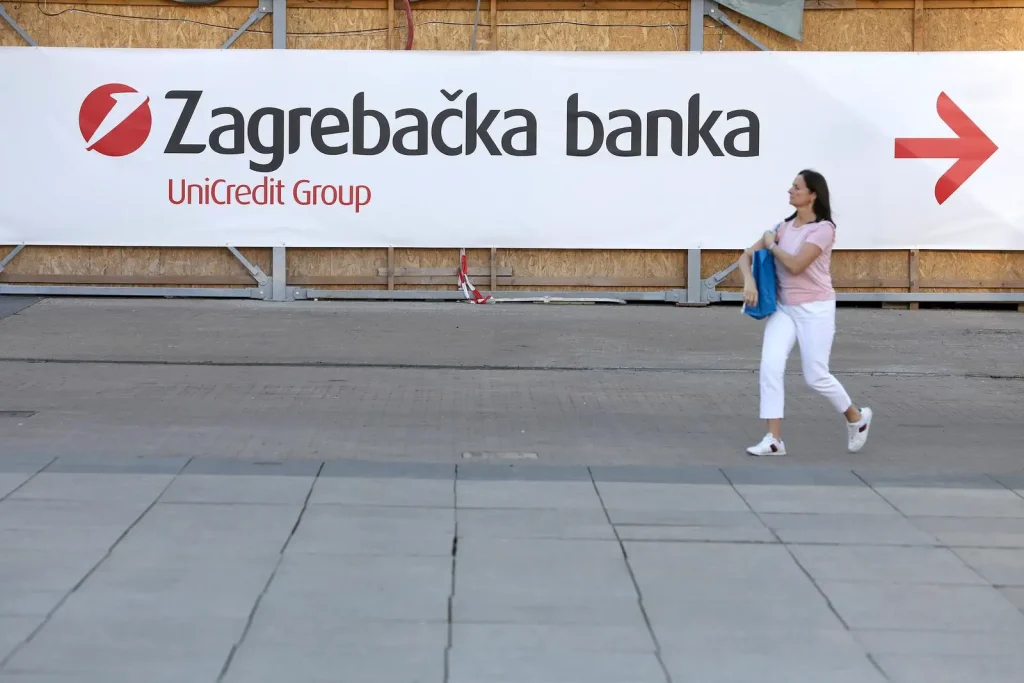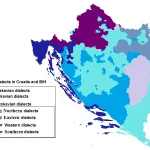It appears that wherever we may roam on this tiny blue dot taking trips around the sun, we end up ‘roaming’ into a taxman. Croatian taxes are the bane of society for a multitude of reasons, but I won’t get into that now. Once you’ve got your residence permit, you’ll need what’s known as an OIB to be able to work, open a bank account, and do just about anything. You can obtain an OIB without residence, too, or before you embark on the residence process.
What is an OIB?
An OIB, or personal identification number (or tax number) is a little bit like a national insurance number (you’ll know what I mean if you’re British), but you’ll end up using it so much in Croatia that you’ll likely end up remembering it. Does anyone else never look at their UK NI? Christ only knows what mine is. The funny thing is that I’ve used my OIB so often that I know it back to front. Bit sad, really. Anyway, back to the point! An OIB is very easy to get, you can simply visit your local tax office (porezna uprava) and ask for one. You’ll just need your passport or other form of government-issued ID.
You can also make the request for an OIB online by visiting porezna-uprava.hr and selecting ‘Dodjeljivanje OIBa’ (Assigning an OIB), then selecting English language as your language of choice (EN).
Getting an OIB assigned to you is so easy that if you’ve gone through the residence process first, you might think you’ve done something incredibly wrong. You haven’t. This is one of those situations in Croatia that seems too simple to be true. Cherish them, they happen at random and are kind of few and far between.
Once you have an OIB, you can open a Croatian bank account as a resident.
Opening a Croatian bank account
There are numerous banks available in Croatia, with the Croatian National Bank (Hrvatska narodna banka or HNB/CNB for short) serving as the independent regulator of commercial banks operating in the country.
The CNB was established as part of the Croatian Constitution which was passed by Parliament on the 21st of December, 1990. It issues banknotes, holds the national monetary reserves, aims to maintain stability and ensures the financial liquidity and soundness of the country’s financial system. The CNB joined the European System of Central Banks and started performing its role under the Statute of the ESCB and the ECB, following Croatia’s entry into the European Union back in July 2013.
Some of the most popular banks in Croatia are Privredna banka Zagreb (PBZ), Zagrebačka banka, Erste & Steiermärkische bank, Raiffeisenbank Austria Zagreb (RBA), and Hrvatska poštanska banka (HPB). There are of course others, such as Addiko bank and OTP, but there’s no need to list them all. Many banks are foreign owned, and those such as Erste are very popular with expats thanks to their ease of use, very good mobile app, and good customer service. There are English language options on banking apps and on their websites.
To facilitate your transactions (paying rent, paying the bills) to receive your Croatian salary and have a local bank card, and to do literally anything financially, you’ll need a Croatian bank account.
What do I need to open an account?
To open a bank account in Croatia, you’ll need an OIB. Generally speaking, you’ll need a valid passport, your residence permit (either your ID card or your registration certificate, if your card isn’t yet finished) and the bank’s application form that you can find online or get directly at the bank to open a bank account as a foreign national. Most of the staff working in banks speak a decent level of English, so you shouldn’t have any communication difficulties. The process is fairly quick.
Types of Croatian bank accounts, apps and online banking
The most typical account types are giro, current and savings account. Some banks offer automatic overdrafts once you open an account, while in others you have to apply for an overdraft once the account has been set up.
As stated, most banks offer online and mobile banking services, which comes in handy when paying the bills, for example, because you can simply scan the QR code that can be found on every payment slip and the payment information is filled in automatically, so you simply have to authorise the payment, click send and the job’s done.
Bank loans for foreigners
Applying for a bank loan is a modern reality in a society which lives increasingly on credit. Inflation and spiralling prices are likely to force more and more people to live this way. Croatia is no exception in putting things on the plastic, even though so many people still love to carry cash, and of course, some cafe bars, pubs and even restaurants like to pretend their POS machines are broken until the tourist season arrives. You can probably guess why… Despite that, many Croatian households of all classes have loans from the bank for a variety of different reasons.
I’ll be blunt, the procedure for getting a bank loan in Croatia is not simple. There are many hoops to jump through, requirements to satisfy, papers to obtain and time to kill, at least in the bank’s eyes. Unless you are armed with an extra dose or ten of patience (or you’ve been sedated), you have a particular masochistic passion for providing people with documents, copies of said documents and filling out forms with half-chewed pens stuck to tables by strings, frustration will be your main companion and your eyes will probably see more of the back of your skill than much else, you know, what with all the rolling they’ll be doing.
Many doe-eyed, would-be foreign buyers of Croatian property seek to borrow funds from the bank to help with their purchases. Despite lots of promises and stringing along, there is still no mortgage product on offer in Croatia for foreign buyers, so please, please, bear this in mind.
Opening times
Opening times for banks will be clearly displayed on their doors, their websites and their apps. Be aware that Croatia is the land of religious holidays, bank holidays, and random days where things just aren’t open. Those days can of course affect the operating hours of banks. Luckily, many things can now be resolved online and through mobile banking, thanks to virtual assistance and even instant chats.
ATMs
Just like across the vast majority of the rest of this modern, fast-paced world, ATMs can be found all over in Croatia, they have even been ‘evicted’ from the hearts of ancient towns like Dubrovnik. You’ll have no problem finding one, and the vast majority (if not all of them) have different language options you can select before withdrawing cash or checking your balance. Do keep in mind that different banks have different limits on how much cash you can withdraw in any given 24 hour period, so make sure to check what yours is.
For more on How to Croatia, from adopting pets to getting health insurance, make sure to keep up with our lifestyle section.











